ABOUT
OUR PURPOSE
Our aim is to build capacity and capability to be able to predict, prepare for, mitigate & respond to events, to learn and adapt to be more resilient and safer in the face of a changing climate, so that all Australians and visitors, wherever they live and whatever their age, ability and cultural background, are able to enjoy and benefit from being in the outdoors and feel safe in doing so.
DID YOU KNOW
There has been a decline of around 15% in April to October rainfall in the south-west of Australia since 1970. Across the same region, May to July rainfall has seen the largest decrease, of around 19% since 1970.
(source: BOM State of the Climate 2022)
Governance
The National Centre for Outdoor Risk and Readiness is a collaborative initiative by Outward Bound Australia for outdoor practitioners across Australia.
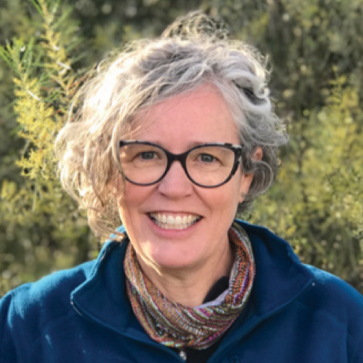
Dr Loren Miller
Co-Chair & Executive Director
Outward Bound Australia – NatCORR Project Leader

Jessica Bulger
Co-Chair
Outward Bound Australia

Simon Lewis
Chair
Australian Outward Bound Development Foundation
NATCORR ADVISORY BOARD

Brendon Munge
Associate Lecturer
Recreation and Outdoor Environmental Studies, Program Coordinator, Bachelor of Recreation and Outdoor Environmental Studies, Program Coordinator, Diploma of Outdoor Environmental Studies at the University of Sunshine Coast.
More information here.
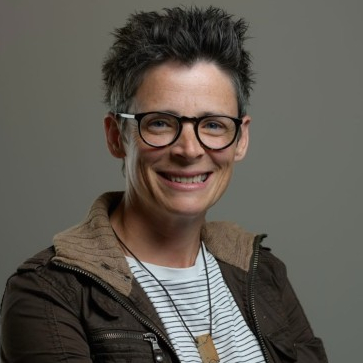
Dr Clare Dallat
Founder & Director of Risk Resolve
Trustee of the State Sports Centre Trust (Victoria) and Outward Bound Vietnam Risk Management Committee Member. PhD in Human Factors (Accident Prediction).
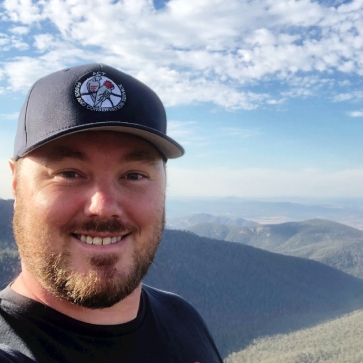
Mark Beech
Learning & Development Officer
ACT Parks & Conservation Service, Training Officer ACT Rural Fire Service and former National Base Manager at Outward Bound Australia.

Dr David Marsden
Director and CEO
The OREAS Group, OREAS Consultancy and Journey 4 Good. AAAS Review Project Lead. PhD in Outdoor Education.
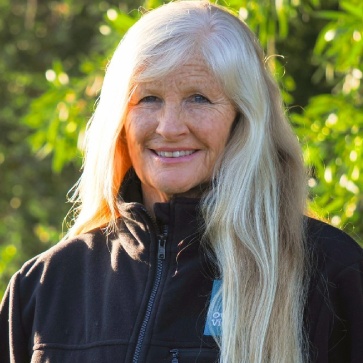
Sandy Allen-Craig
Recently retired Senior Lecturer School of Behavioural & Health Science, ACU
Board member of Outdoors Victoria and Outward Bound Australia.

Erinn Campbell
Director of Outdoor Education, St Mary’s Anglican Girls’ School and Sessional Lecturer
Outdoor Education at the University of Notre Dame.

Andrew King
Founder of AiKing Australia outdoor gear and gear repair
Managing Director of ONE PLANET®– Australian manufacturers of outdoor equipment specialising in outdoor education.
More information here.

Dr Scott Polley
Program Director
Bachelor of Outdoor & Environmental Leadership, University of South Australia. PhD in Outdoor Education.
More information here.

Vicki Heinrich
Project Officer
Social Science & Service Policy, Hazard Preparedness & Response at the Bureau of Meteorology. PhD in Philosophy – Use of Weather & Climate Information ; Risk Perception & Decision-making in Antarctica & Australia.
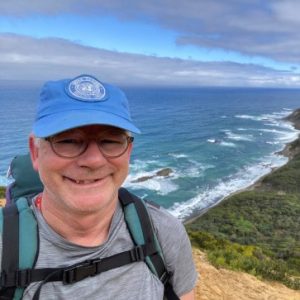
John Richardson
Executive Director Australian Institute for Disaster Resilience
John has qualifications in Georgraphy, Nursing & Environmental Science, and is a published author and blogger. 35 years ago he completed the Summit to Sea Outward Bound 28 day course from Mt Koscuizsko to Cape Conran.
In 2020 Outward Bound lost 3 operational areas to bushfires with devastating impact – the clean-up was a massive job; insurance under-delivered and accessing government support was time consuming and resource-demanding.
It’s a long and ongoing road to recover and renew. Outward Bound Australia is not alone in this issue.
Millions of Australians, school students, families and tourists visit and enjoy our natural environment for school camps, holidays, recreational sports and activities, relaxation, wellbeing, and adventurous expeditions.
Outdoor education and recreation service providers across Australia provide a critical means for many to access, experience and enjoy the benefits of being in nature. However, bushfires, floods and extreme weather events are increasing in number and impact in Australia.
To adequately mitigate the risk for communities and for outdoor practitioners there is a need for a coordinated, national program of research, capacity building and skills development to manage and reduce the risk and impact the changing climate brings.
This is NatCORR.
Outward Bound Australia has been successful in securing a $3.7m grant from the Federal Government towards a $7m National Centre for Outdoor Risk and Readiness to address these issues providing the Centre with a ‘home’ and running three years of programs across 4 key hubs.
These programs will help outdoor professionals to:
Access, understand, monitor and respond to weather and changing environmental conditions;
Evaluate and prepare for safe access and operations in volatile and impacted environments;
Assess risk, plan for responses and manage incidents;
Minimise natural ecosystem impacts and aid ecosystem recovery and resilience; and
Be financially and organisationally resilient and responsive in volatile and climate change impacted contexts.
Plan for success
NatCORR’s activities will drive a step-change across 4 key hubs:
In each hub, you’ll find information, resources, videos and downloads related to that area.
1
Weather & Environmental Conditions
2
Risk Management & Incident Response
3
Impact & mitigation
4
Economic & Social Resilience
Guiding Principles

Collaborative & Generous
We will work across the outdoors sector and partner with experts in weather, climate change, risk management, emergency management, research and technology, to support outdoor education and recreation organisations to be best equipped with the knowledge, skills, tools, and infrastructure they need to adapt to the impacts of climate change.
Inclusive
The outdoors sector is diverse and largely locally-centered, serving communities across Australia. We are committed to an inclusive approach to this work, including our Indigenous communities, who have much to teach us.

Adaptive & Learning
We recognise that the environment we operate in is already complex. Climate change brings another dimension of complexity and uncertainty. We are committed to continuous learning and adaptation.

Pragmatic & Efficient
The urgency and scale of the changing climate impacts on Australia’s environment are such that we must act quickly, efficiently and pragmatically, utilising limited resources wisely to upskill and respond to impacts on our work and our communities.
Committed
We are commited to working together to enhance safe operations, protect communities and encourage Australians to continue to explore the outdoors for their health, wellbeing and enjoyment.

Earth-centered
Our work in the outdoors is deeply connected with the earth and its natural ecosystems. In addition to sharing the natural environment with others, we are deeply committed to protecting, preserving and restoring.
Please join us in a conversation about your interests in the National Centre for Outdoor Risk and Readiness (NatCORR) and help us to realise the global potential of this program.
Key
Statistics
OUTDOOR PROGRAMS & CAMPS
Evidence shows school outdoor education programs and camps significantly reduce anxiety and increase confidence.
50% INCREASE IN CREATIVITY
Studies show: A mere four days backpacking in nature improved people’s creativity by 50%
MEMORY IMPROVEMENT
A simple experiment concluded that walking through nature before completing a memory test improved memory scores by 20%
Protect our
National Parks
National Parks provide a major boost to Australia’s economy, with nature-based tourism bringing $23 billion into the country every year.
By contrast, the estimated annual health services value of Australia’s national parks is around $145 billion ($100 billion USD) a year.
Annual
Park Visits
More than 180,000 students in Victoria alone visit parks each year to participate in education
programs.
Australians spent a total of 54.5 million nights caravan & camping in the year ending March 2019, a 6.5% increase over 2020.
35.5 million people visit NSW’s national parks each year. In Victoria, there are 50 million visits to national, state and metropolitan parks every year, 45 million visits to piers and jetties and 17 million visitor nights from tourists.
